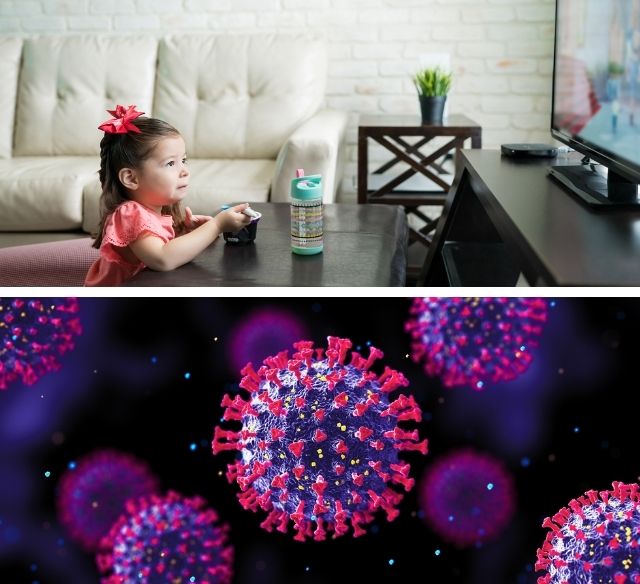Tip Sheet: Studies on COVID-19, TV and Toddler Diet Among Johns Hopkins Research to Be Featured at National Pediatrics Meeting
04/22/2022

What: Pediatric Academic Societies (PAS) 2022 Meeting
When: April 21 to 25
Where: Colorado Convention Center (700 14th St., Denver, CO 80202)
Johns Hopkins Children’s Center researchers will present on numerous topics during the PAS 2022 meeting. The following are some of the presentations:
25-Hydroxyvitamin D Deficiency and Risk of Dyslipidemia in Children with Chronic Kidney Disease
Friday, April 22, 7 to 7:15 p.m. Mountain Time
Convention Center: 708, 710, 712
Oral Abstract
Children and adults with chronic kidney disease (CKD) are at high risk for cardiovascular disease, a potentially life-threatening condition affecting the heart and blood vessels. Previous research has shown that deficiency of vitamin D (more specifically, 25-hydroxyvitamin D) is a very common condition that can lead to increased risk for dyslipidemia – unhealthy levels of fats (lipids) or cholesterol – in adults, which may increase the risk for cardiovascular disease. However, this association has not been studied in children.
As part of the Nephrology I: Clinical Science session, Zachary Newton, M.D., a fellow in the Division of Pediatric Nephrology at the Johns Hopkins University School of Medicine, will discuss his team’s findings indicating that insufficient levels of vitamin D are associated with dyslipidemia in children with CKD.
Newton was awarded the 2022 American Society of Pediatric Nephrology Trainee Research Award for his abstract.
View an interview with Newton for more details.
TV Time, Especially During Meals, Is Associated with Poor Dietary Practices Among Toddlers
Sunday, April 24, 1:30 to 1:45 p.m. Mountain Time
Convention Center: Mile High Ballroom 4CD
Oral Abstract
Several studies have found a correlation between TV screen time and poor dietary practices, but most have involved school-age children. The relationship for toddlers is less well studied.
During the General Pediatrics: Primary Care I session, Melissa Lutz, M.D., a fellow in the Department of Pediatrics at the school of medicine, and Eliana Perrin, M.D., M.P.H., Bloomberg Distinguished Professor of Pediatrics at the school of medicine and the Johns Hopkins University School of Nursing, will share insight into their team’s study that looked at the association between TV screen time, including during meals, and dietary practices among 2-year-old children. They found that toddlers who had more screen time and TV viewing during meals had significantly worse dietary practices.
Lutz won an Academic Pediatric Association Region 4 award for best fellow presentation for this work.
View an interview with Lutz for more details.
Preexisting Chronic Illness As a Risk Factor for Pediatric COVID-19 Disease Severity
Sunday, April 24, 3:30 to 6 p.m. Mountain Time
Exhibit Hall
Poster Session – Poster 151
When children get COVID-19, could certain risk factors make them more susceptible to severe illness? Research has not previously consistently identified risk factors that could determine whether a child is more likely to be hospitalized or have a more serious case of COVID-19.
Olga Charnaya, M.D., assistant professor of pediatrics, and Ryan Handoko, M.D., a resident in the Department of Pediatrics, are among the school of medicine researchers who investigated whether underlying chronic illness, along with age and obesity, could increase the potential for severe COVID-19 among pediatric patients. Their findings, which will be showcased during the Children with Chronic Conditions II session, determined that children with certain underlying chronic medical conditions had an increased chance of getting severe COVID-19.
View an interview with Handoko for more details.
Association of Perinatal HIV Infection with Blood Pressure and Hypertension Among Youth
Monday, April 25, 10:15 to 10:30 a.m. Mountain Time
Convention Center: 708, 710, 712
Oral Abstract
HIV infection is associated with a greater risk for cardiovascular disease in adults. High blood pressure (hypertension) is a leading cause of cardiovascular disease, and adults living with HIV have more hypertension and heart disease than adults without HIV.
In the Hypertension session, Tammy Brady, M.D., Ph.D., vice chair for clinical research in the Department of Pediatrics at the school of medicine and medical director of the pediatric hypertension program at the Children’s Center, will share results of a study by her and fellow researchers on how HIV infection impacts blood pressure in children. They compared systolic and diastolic blood pressure and the prevalence of high blood pressure between youth living with perinatally acquired HIV infection and youth exposed to HIV perinatally but not infected. Brady says these results emphasize the importance of lifestyle counseling for prevention of cardiovascular concerns, even among the most vulnerable.
View an interview with Brady for more details.
---------------------
Along with these sessions, oral and poster presentations and panel discussions by Johns Hopkins Children’s Center researchers on a range of pediatric-focused topics are scheduled during the PAS 2022 meeting, including the latest developments on preventing and managing infections and other conditions, and improving health care for underserved communities. More information is on the PAS 2022 meeting website.
